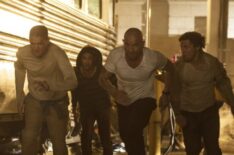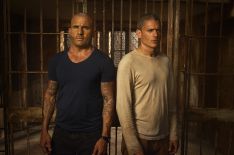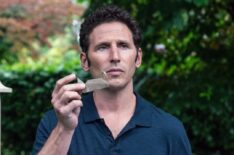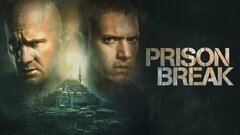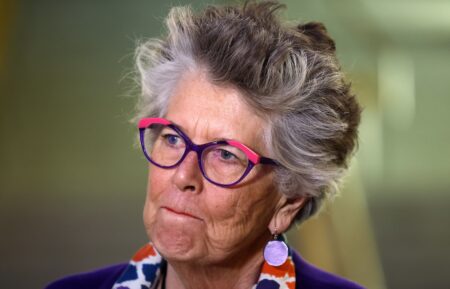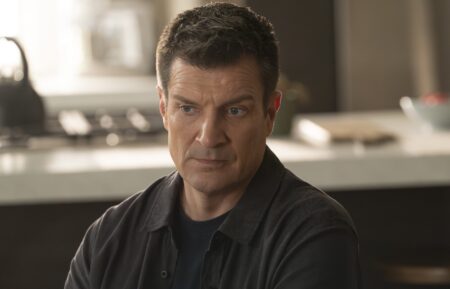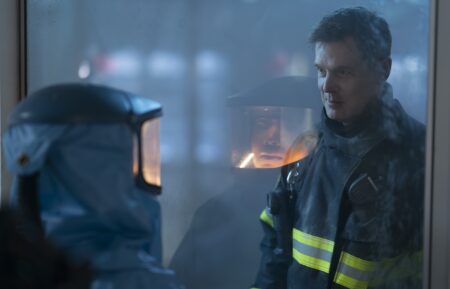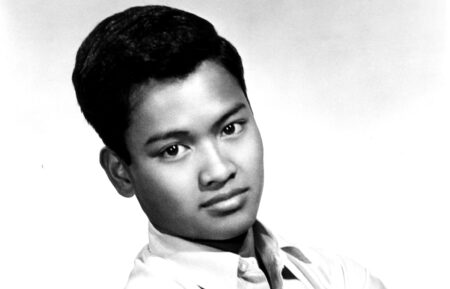‘Prison Break’ Boss on the Finale’s Twists, Alternate Ending and Uncertain Future
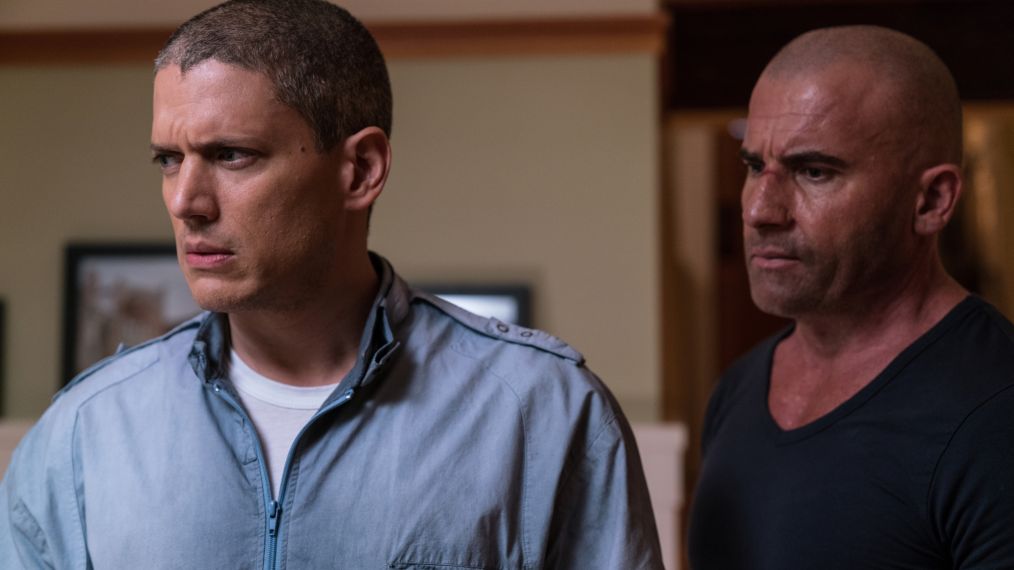
Spoiler Alert
[Spoiler alert: This post contains details about the Prison Break finale.]
Michael Scofield (Wentworth Miller) got as close to a happy ending as possible.
After being separated for years from his brother Lincoln (Dominic Purcell), his wife Sara (Sarah Wayne Callies) and his son, Michael was able to clear his name, gain his freedom, and finally put Jacob (Mark Feuerstein) away.
Of course, it wasn’t all wins: Michael’s friend Whip (Augustus Prew) died. But that loss led to the ultimate revenge for his newfound father T-Bag (Robert Knepper), who ended the season locked up with Jacob…and was able to get a proper revenge.
With the show’s future in limbo—both series creator Paul Scheuring and Fox have called the return a limited run—we spoke with Scheuring about what went down.
What was the balancing act like for you to end the series and have it be conclusive, but also leave it open to possibly return to this world at some point?
Paul Scheuring: The goal for this limited run of Prison Break was to tell a very strong nine episodes. It had its own beginning, middle, and end, and we wrap it up. It’s a nine-hour movie in a lot of ways. The goal was never to have a cliffhanger. The possibility of additional seasons was not taken into consideration; that’s just something that’s out there in the ether.
For you personally, how is it saying goodbye to the show again and not knowing if you’ll be revisiting it?
I’m fine with it, in the sense that you can’t just keep doing something because you want to keep doing it. You have to feel like it’s worth doing on a high level. A number of years ago I stepped away from Prison Break; it felt like I had exhausted my contribution to the show. I came back this time because I had one small narrative to use that was strong that I could share with the audience. And so right now, I feel like that went well. We did what we intended. That’s not to say another season couldn’t come up in the future. But I don’t have it in my head, and it would have to have a pretty high bar of quality for me to be interested. I don’t want to crank stuff out just to crank stuff out; I want fans to think it’s awesome.
There was an optimistic ending for Michael, Sara, and Lincoln—more so than I imagine many fans might have expected. What led you to that place, and what do you hope fans take away from that?
There’s two answers to that. This [season] was based on The Odyssey. At the end, it was nice to see him back with his family; I wanted to honor that. I wanted to see Michael looking at the woman he loves and the child he hasn’t seen before this. He’s never had this. He’s always constantly getting screwed in Prison Break.
The other thing was, on the page, we had a slightly different ending, with Sara saying, “It’s okay, you don’t have to look over your shoulder anymore.” And that’s exactly what he does; he looks over his shoulder, having experienced what he experienced and the history that he has. And implicit with that is there is probably something out there that will tap him on the shoulder again. That didn’t end up getting shot like that. But that’s one of those alternate endings that may be interesting to fans. The idea was he may have a life again, but there will always be something out there.
There was the idea brought up in the finale that Michael could put his skills to use in an official capacity. Was that laying the groundwork for a potential move in the future or something you had planned on at least bringing up for a while?
No, that was not laying groundwork whatsoever. We wanted to get that suggestion in at the end of the season, and hopefully the audience rolls their eyes and says, “Don’t tell me he’s going to work for the government” and then he says no. At the end of the day, that’s not him; he’s always been a lone wolf. That’s not a foundation for a future narrative.
Looking to Jacob as this season’s Big Bad, what did you feel Mark was able to bring to the series?
He had to be likable, because otherwise it reflects poorly on Sara. [Mark] was a likable doctor on Royal Pains for so many years. And he’s a very smart guy. I sat down with him before the season started, and Mark is a very smart guy, which is not always the case with actors. The feeling is here is a guy who is very likable, intelligent, a very good actor and very hungry to do it. He ticked all the boxes, so we were very pleased with where he ended up.
At what point in the writing process did you land on the idea of Jacob ending up in a cell with T-Bag?
The whole show was outlined before we sat down to write the scripts, so I knew what the last beats of the season were. I knew that Michael would not kill this guy, because that’s not what Michael does. But if he wasn’t going to get killed, you knew he was going to get his comeuppance for all the things he had done before the season and during the season. And who better to kill him than T-Bag?
What led to the decision to kill off Whip, especially so soon after he reunited with his father?
It was predetermined; it was all in the initial [show] bible before the season. It’s two-fold. First of all, what’s the fate of the antagonist? What are we going to ultimately do with Jacob? And I couldn’t imagine a scene where Michael killed Jacob. I felt like Jacob needed to die; if he’s in jail, he’ll get out of jail, manipulate the system and then there’s a problem.
And I couldn’t imagine a scene where we saw T-Bag kill Jacob, and everyone went, “Thank God. Story is over.” I thought it would be great symmetry if we started the season in Fox River and then end the season in Fox River in the last scene. And Jacob is now there with T-Bag. And we know just those guys being a cell, there’s no doubt T-Bag will kill him. T-Bag can’t have a happy ending. In my opinion, you can’t have him be happy with his son—no one wants to see that in T-Bag. He’s a criminal. He’s a murderer. He’s done so many things wrong. And yet we empathize with him. At the end of the day, the only place that guy belongs is in prison. And so I wanted him to see the light for a moment, and then have it be totally taken away from him and he ends up back in prison. He at least gets justice.
We did see Whip’s death on-screen, but earlier in the season, we didn’t see Kellerman’s (Paul Adelstein) actual death. Should there be any lingering doubt about that?
[Laughs.] That’s a multi-dimensional question. Yes, the intention was Kellerman is dead. Everyone who died this year is dead. Now, I don’t know how good my word or Prison Break‘s word is on killing people, because Kellerman had already died once. Michael died once. Sara’s head was in a box. I will say, in as genuine a way as I can, everyone who died this year is dead. The insinuation at the end is Jacob is dead, too. My intention is to not be cute with any of those stories; they’ll all be dead if the show comes back.
Looking to the show’s future, what conversations have you had with Fox? Are they looking to get more ASAP or are they okay with waiting?
You know, it’s always kind of out there. They have not explicitly come after me, and I have not explicitly solicited them. I only have meaningful conversations when there’s something significant to discuss. Through whispers, there might be a hunger for it. But until I have an idea or someone comes to me with an explicit desire to do it, I’m working on other things.

